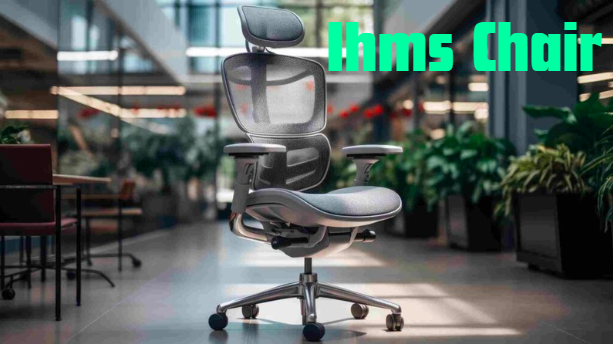Precision machining is crucial in engineering and manufacturing for its role in enhancing product quality, efficiency, and cost-effectiveness. This blog explores its definition, evolution, key technologies, applications across industries, and future trends, highlighting its importance for engineers and manufacturing professionals.
Key Technologies in Precision Machining
CNC Machining
Computer Numerical Control (CNC) machining is one of the cornerstones of precision machining. It involves the use of computers to control machine tools, allowing for high levels of accuracy and consistency. CNC machines can produce intricate components in various materials, including metals, plastics, and composites. The ability to easily replicate complex designs has made CNC machining a preferred choice for many manufacturers, ensuring that products meet exact specifications.
Advanced Materials
The development of advanced materials, such as titanium alloys and carbon fiber composites, has also played a crucial role in precision machining. These materials require specialized machining techniques, such as laser cutting like those in Salt Lake City due to their unique properties, such as high strength and low weight. The challenge of machining these advanced materials has driven innovations in tool design and machining parameters, ensuring that manufacturers can effectively work with them without compromising quality or precision.
Automation and Robotics
Automation and robotics are transforming precision machining processes by enhancing productivity and reducing operational costs. Automated systems can perform repetitive tasks with minimal human intervention, allowing skilled workers to focus on more complex challenges. Furthermore, the integration of robotics in machining operations has led to improved safety, as robots can handle hazardous materials and perform tasks in dangerous environments.
The Role of Precision Machining in Different Industries
Aerospace Industry
Precision machining is vital in the aerospace sector, where components must meet stringent safety and performance standards. For instance, turbine blades and landing gear parts require exceptional precision due to their critical functions. Companies invest significantly in precision machining technologies to ensure that these components can withstand extreme conditions and perform reliably.
Medical Device Manufacturing
In the medical field, precision machining is crucial for producing devices such as surgical instruments and implants. These components must meet strict regulatory standards and be manufactured to exact tolerances. Precision machining allows manufacturers to create complex geometries and fine details that are essential for the proper functioning of medical devices. The high quality associated with precision machining directly translates into better patient outcomes, making it a key player in the health sector.
Automotive Applications
The automotive industry relies heavily on precision machining to produce engine components, transmission parts, and other critical automotive systems. With the rise of electric and autonomous vehicles, manufacturers are increasingly turning to precision machining to create lightweight and efficient components. For example, precision-engineered battery housings can improve vehicle performance and energy efficiency, showcasing the adaptability of precision machining across evolving industries.
Advantages and Limitations of Precision Machining
Advantages
One of the most significant advantages of precision machining is its ability to produce highly accurate components that meet strict tolerances. This accuracy minimizes waste and reduces the need for costly rework, ultimately saving manufacturers time and money. Furthermore, precision machining enables the production of complex geometries that might be impossible or prohibitively expensive to achieve through traditional machining methods.
Limitations
However, precision machining is not without its limitations. The initial setup costs for CNC machines and other precision equipment can be substantial, which may deter smaller manufacturers from investing in such technology. Additionally, the complexity of machining processes may require specialized training for operators, further complicating implementation. Lastly, while precision machining excels in producing high-quality components, its reliance on specific materials may limit its applicability in some cases.
Comparison to Other Methods
Compared to other manufacturing processes, such as injection molding or additive manufacturing, precision machining offers distinct advantages in terms of accuracy and material variety. While other methods may excel in producing high volumes of identical parts quickly, precision machining shines in producing low to medium volumes of intricate designs with superior quality. Understanding these differences can help manufacturers choose the right method for their specific needs.
The Future of Precision Machining
Emerging Trends
The landscape of precision machining is continually changing, influenced by advancements in technology and shifts in market demand. One emerging trend is the increasing use of artificial intelligence (AI) to enhance machining processes. AI algorithms can analyze historical machining data to optimize parameters and predict maintenance needs, ultimately improving efficiency and reducing downtime.
Industry 4.0
The adoption of Industry 4.0 principles is also shaping the future of precision machining. This approach emphasizes connectivity and smart manufacturing, allowing machines to communicate with one another and share data in real-time. By leveraging the Internet of Things (IoT), manufacturers can gain insights into their operations, leading to improved decision-making and resource management.
Sustainability Initiatives
Sustainability is becoming a priority across all industries, and precision machining is no exception. Companies are increasingly seeking ways to reduce waste and energy consumption throughout their operations. This shift towards sustainable practices includes exploring eco-friendly materials, optimizing machining processes to minimize scrap, and investing in energy-efficient machines.
Best Practices in Precision Machining
Invest in Training
To ensure successful precision machining operations, investing in employee training is critical. Skilled operators are essential for maximizing the potential of advanced machining technologies. Regular training sessions can help employees stay updated on new techniques and technologies, leading to improved productivity and quality in the long run.
Optimize Workflow
Streamlining workflows is another best practice that can significantly enhance precision machining processes. By analyzing production steps and identifying bottlenecks, manufacturers can implement changes that reduce cycle times and improve efficiency. Lean manufacturing principles can be particularly effective in optimizing workflows and minimizing waste.
Maintain Equipment Regularly
Regular maintenance of precision machining equipment is vital to ensuring consistent performance and preventing unexpected breakdowns. Create a scheduled maintenance plan that includes routine inspections, cleaning, and repairs. This proactive approach can extend the lifespan of machinery and help maintain high levels of accuracy throughout production.
Conclusion
Precision machining is an essential component of modern manufacturing, offering unparalleled accuracy, efficiency, and versatility across various industries. Its evolution over the years has showcased the advancements in technology and practices that have shaped the way we create products today.



